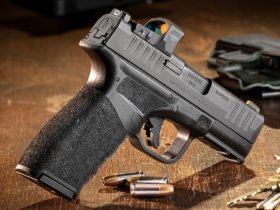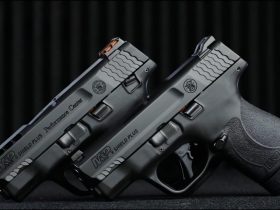Can a Felon Go to a Gun Range?
As a convicted felon, it’s natural to wonder if you can still engage in activities related to firearms, such as visiting a gun range. The answer is not a simple yes or no. In this article, we’ll delve into the legal complexities and provide a detailed explanation of the laws surrounding felons and gun ranges.
Federal Laws
In the United States, federal law prohibits felons from possessing or using firearms. 18 U.S.C. § 922(g) states that “it shall be unlawful for any person who has been convicted of a felony to own, possess, or control any firearm or ammunition.” This law applies to all federal gun ranges and facilities.
State Laws
However, state laws vary regarding felons and gun ranges. Some states have laws that specifically prohibit felons from visiting gun ranges, while others have more lenient regulations. Here are a few examples:
-
- California: Cal. Penal Code § 29800 prohibits felons from owning, possessing, or controlling a firearm, including visiting a gun range.
-
- Florida: Fla. Stat. § 790.23 makes it illegal for a felon to possess or control a firearm, but does not explicitly prohibit visiting a gun range.
-
- Texas: Tex. Penal Code § 46.04 prohibits felons from possessing or controlling a firearm, but does not specifically mention gun ranges.
Visiting a Gun Range: What You Need to Know
Before visiting a gun range, it’s essential to understand the laws in your state and the policies of the gun range itself. Here are some important points to consider:
-
- Background Check: Some gun ranges may require a background check before allowing a felon to visit. If you’re unsure, ask the range staff about their policies.
-
- Proof of Compliance: You may need to provide proof of compliance with state and federal laws regarding firearms. This could include documentation of your felony conviction and any related court orders.
-
- Range Policies: Gun ranges have the right to deny access to anyone, including felons. Some ranges may have specific policies or restrictions in place for convicted felons.
-
- Alternative Options: If a gun range denies you access, you may want to consider alternative options, such as participating in shooting sports that don’t involve firearms, like archery or airsoft.
What Happens if You Get Caught?
If you’re a felon and visit a gun range, and you’re caught, you could face serious legal consequences. Federal law makes it a felony offense to possess or use a firearm as a convicted felon, punishable by up to 10 years in prison. State laws may also impose penalties, including fines and imprisonment.
Table: Felon Gun Range Laws by State
| State | Prohibition on Felons Visiting Gun Ranges? | Additional Restrictions |
|---|---|---|
| California | Yes | Prohibited from owning, possessing, or controlling a firearm |
| Florida | No | Prohibited from possessing or controlling a firearm |
| Texas | No | Prohibited from possessing or controlling a firearm |
Conclusion
In conclusion, while felons may not be explicitly prohibited from visiting gun ranges in some states, federal law and state laws restrict their access to firearms. It’s essential to understand the laws in your state and the policies of the gun range before visiting. Remember, even if you’re allowed to visit, you may still face legal consequences if you’re caught with a firearm. If you’re unsure about the laws or policies, it’s best to err on the side of caution and avoid visiting a gun range.
Additional Resources
-
- Federal Bureau of Prisons: “Firearms and Convicted Felons”
-
- National Rifle Association (NRA): “Felon and Gun Laws”
-
- Gun Range Guide: “Felon and Gun Range Laws by State”
Read the full article here








Leave a Reply